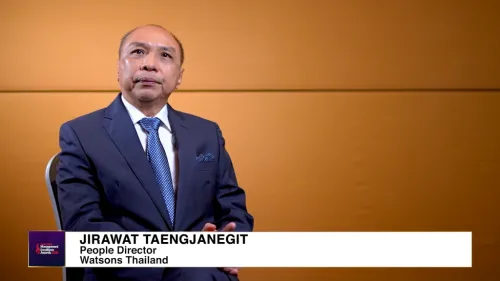China’s economic recovery ‘weaker than expected’
Decline in China’s exports pose challenges not only for China but also for Asian businesses, especially those centered on export industries.
The shift in focus from manufacturing to services across major economies post-pandemic has caused a struggle for China’s economy to recover after posting a 14.4 percent decline in its exports in July.
Maxim Hofer, Senior Consultant on Economics at Euromonitor International, said that given the linkages between China and Southeast Asia, the decrease can also be a drag on growth for the region.
“The key story here is that there's been a broad based slowdown in terms of demand for manufactured goods. This is a result of the post pandemic economic recoveries in major economies and elsewhere, which focus primarily on services rather than manufactured goods,” Hofer said.
“This contributed to a weaker than expected economic recovery in China this year, especially in terms of exports, as you mentioned, as we've seen in the data in the summer of this year,” he added.
According to Hofer, despite the challenges, the APAC region remains a strong growth driver globally. However, due to elevated inflation and higher interest rates in major economies, the global growth outlook for the forthcoming year has been revised downwards.
“The bad news is that we just revised downwards our global growth outlook for next year due to elevated inflation and higher interest rates in major economies, especially the US and eurozone, and also due to more persistent challenges in the Chinese economy,” he explained.
He said that Asian businesses, with their regional or global reach, will need to adapt through diversifying markets, emphasizing that production locations and supply networks could be pivotal in mitigating risks.
“So a greater footprint in this fast growing region provides resilience, especially when thinking about the economic disruptions and potentially a prolonged slowdown in major economies,” he said.
Hofer pointed out that high-tech goods, machinery, and textiles are currently highly concentrated. As the global economic landscape changes, these industries are expected to diversify and establish a more robust presence in the APAC region. Supporting industries around these sectors will also likely experience growth in the region.
Addressing how businesses can turn the situation to their advantage, Hofer stressed that the most important development in the global economy, aside from the slowdown in growth, is a structural change in trade and investment due to geopolitical risks.
“The APEC region is in a particularly strong position to benefit from this development, with countries like Vietnam, India, Indonesia, becoming potentially future manufacturing and export hubs based on the labor pool productivity, growth and also the trade environment,” he concluded.



















 Advertise
Advertise








Commentary
Ingredients take centre stage for Asian consumers across food and beverage purchases
Human Sparsity Blockchain: A citizen-validated ledger for digital finance supervision
Breaking the myths around turbomachinery downtime in APAC